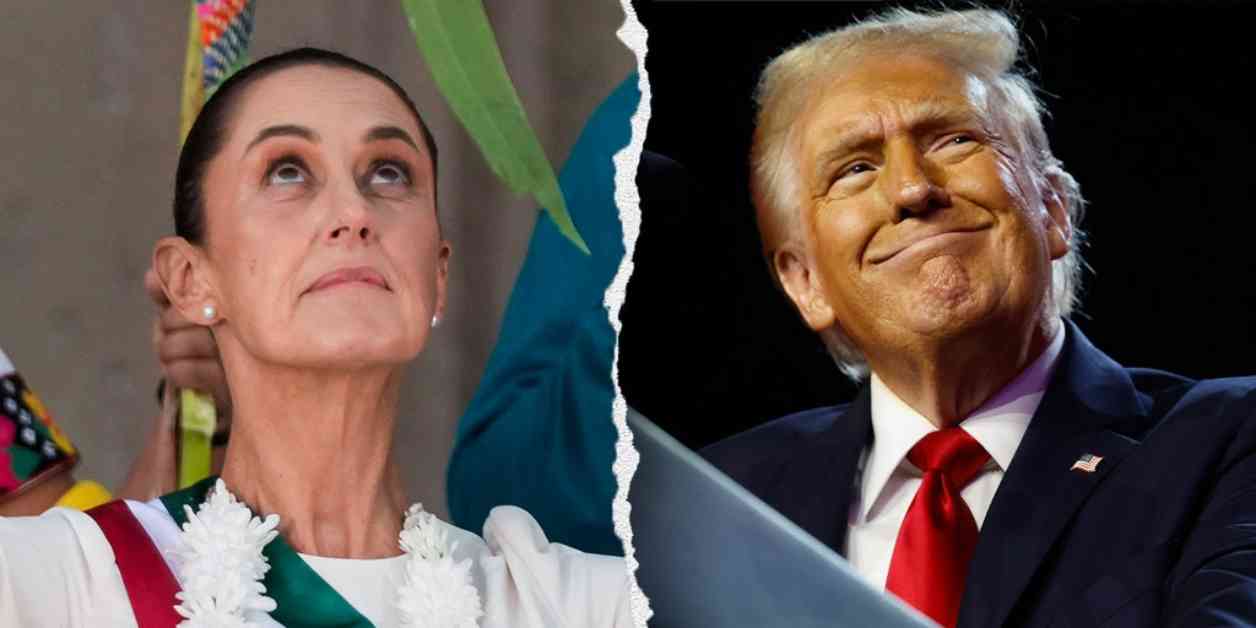President-elect Trump recently stated that he had a conversation with Mexican President Claudia Sheinbaum Pardo, in which she agreed to take steps to “stop Migration through Mexico, and into the United States” after Trump threatened to impose significant tariffs on goods coming into the U.S. from Mexico. Trump had warned that he would impose 25% tariffs on Mexico and Canada if they did not do more to prevent the flow of illegal immigrants and drugs into the U.S. Sheinbaum, in response, mentioned that Mexico would retaliate with tariffs of its own if Trump followed through on his threats.
During a press conference, Sheinbaum stated that if the U.S. imposed tariffs, Mexico would also raise tariffs in response. This development comes after Trump’s remarks about a constructive conversation with Sheinbaum on the issue. Trump expressed his satisfaction with the outcome, stating that Mexico would immediately take steps to prevent people from reaching the Southern Border of the U.S., which he believed would help in curbing illegal immigration.
Fentanyl, a potent synthetic opioid that has caused numerous overdose deaths in the U.S., has been a major concern for Trump. He highlighted that much of the illicit fentanyl entering the U.S. is produced in Mexico with Chinese ingredients and smuggled across the border. This has prompted Trump to consider imposing an additional 10% tariff on China due to the fentanyl crisis.
In response to the growing fentanyl crisis, Trump mentioned plans for a large-scale advertising campaign to raise awareness about the dangers of the drug. He emphasized the devastating impact of fentanyl on American lives and expressed his commitment to educating the public about its dangers.
The Chinese government, however, criticized Trump’s justification for imposing additional tariffs on Chinese imports, citing it as unjustified. The China Daily, a newspaper affiliated with the Chinese Communist Party, published an editorial questioning Trump’s rationale for threatening additional tariffs on Chinese goods.
Overall, Trump’s efforts to address the issues of illegal immigration and drug trafficking through diplomatic conversations and potential tariffs reflect his administration’s focus on border security and public health concerns. The collaboration between the U.S. and Mexico in addressing these challenges demonstrates a commitment to addressing shared issues for the benefit of both countries.




